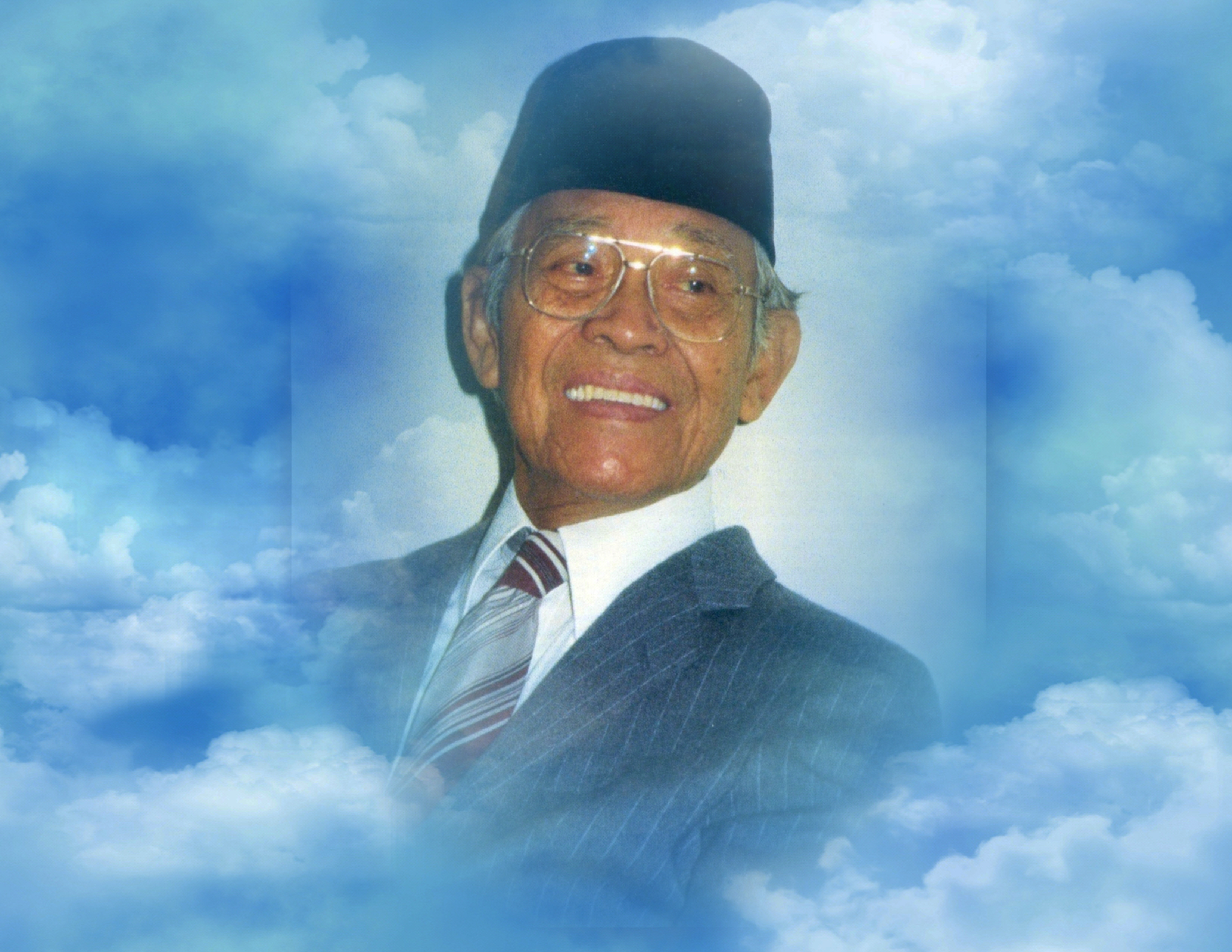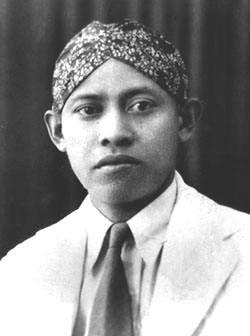 Submitted by Indara on
Submitted by Indara on

To all outward appearances, Pak Subuh was just an ordinary man. According to John Bennett, Subuh was, “the man who knows where the switch is which floods the inner life of man with light.” Bennett further said that many sick people who had been in touch with Subuh had recovered their health yet Subuh made no claims of being a faith healer. The unknown Javanese bookkeeper never had a thought he would become the leader of a world famous spiritual movement called Subud but his experience with visionary revelations would relay a different future.
Subuh was born in Semarang in Java on June 22, 1901 and named Sukarno. He died in 1987 in Java. Biographical accounts say he was a sickly child who was not expected to live. One day an old man passing the house heard wailing from within and inquired about the reason. He was told that the child inside was dying. The old man was prompted to say that the child was incorrectly named and that his name should be Muhhamad Subuh which means ‘dawn’. Sukarno became Subuh and began to flourish.
As he grew, he began to show evidence of clairvoyant powers. He was soon making predictions with great accuracy sometimes to the chagrin of his family. At age 16 he began to hear predictions made by others that he would die between the ages of 24 and 32. At that time he left school and went searching for a guru who could explain this pending dire fate to him. He sought out many of the spiritual teachers of Java, none of whom would teach him and sent him away. Eventually he found Sheikh Abdurrahman, who belonged to a Dervish order who was willing only to give the message that he would receive his teaching from a ‘Higher Source’. Feeling he had exhausted all possibilities, Subuh married and began a life as a bookkeeper.
One evening in 1925, while he was out walking, he saw a bright ball of light in the moonless sky overhead.
The event as described by writer Husein Rofé in his book The path of Subud described it as:
The ball of light descended and ‘touched his head and he began to quiver and shake as if attacked by ague’. He thought he was having a heart attack and hurried home and went to bed. But a strange force raised him up to a standing position quite independently of his own will or intention and impelled him to go through the ritual of Muslim prayer. This was the beginning of a ‘series of spiritual phenomena that lasted for approximately one thousand nights’.

Muhammad Subuh Sumohadiwidjojo
During this time, Subuh had many visions and inner experiences that kept him awake yet he still carried out his job during the day. At the end of three years the nocturnal visions ceased and for the next five years he lived as a normal man. Curiously, during that five years he was asked for advice from friends at an increasing rate. Those that sought him out felt he had a special access to Higher Knowledge. At age 32, he had a revelation that, ‘the wealth of power and illumination he had been given must be freely handed out to those who asked’. He was told to retire from all worldly activity and to give up his job even though he had a wife and six children to support. He said, “It was a Divine command that I should no longer accept paid employment from men; the onus of caring for our welfare has been assumed entirely by God. Have faith and you will see that we will be well provided for; we shall lack nothing essential. But if you force me to choose between God and you, then we shall have to part.”
That very thing came to pass.
What is Subud? The word is derived from three ancient Sanskrit word – Susila, Budhi and Dharma.
Susila means “to have good morals.” Pak Subuh’s interpretation is, “Right Living according to the Will of God.”
The word budhi equates with the power of the intellect, consciousness or the will of man. Subuh interpreted it as, “The inner force or power that resides within the nature of man himself.”
Dharma means law, the world order, duty or fate. Subuh’s take – “Submission, surrender and sincerity in receiving the gift of Grace from the Almighty.”
Accordingly, Subud is the harmony of man’s outer and inner life when he lives in submission to the Divine Principle as revealed to him through the highest center of consciousness, which is seated in the Soul rather than the brain.1
From 1933, Muhammad Subuh began to pass his ‘spiritual current’ onto others – it was simply enough for him to merely stand in the presence of others to have effect. Initiates who underwent the effects might have been healed from disease, relieved of phobias and any self-destructive habits and addictions. Although this was not the actual aim of Subud, it was a welcome by-product of the initiation. Over the next twenty years, Subud spread throughout Indonesia. In the mid-1950s it began to spread outside that sphere. Husein Rofé was the first disciple to take it to Cyprus and then to England. Bennett was a busy man with many concerns to attend to, yet, every time he tried to put Subud on the back burner he would be interrupted by an inner voice telling him “go now.’ John Bennett who was first repelled by Subud was eventually initiated by Rofé. John Bennett also threw himself into Subud, organizing and spreading its worth via lectures and travels abroad. Unfortunately after four years, Bennet gave up on Subud feeling it did not offer his restless mind enough to work on.
The movement of Subud that has grown out of this, through Husein Rofe, has spread throughout the world. Although Pak Subuh is a Muslim, the movement has no religious training, dogma, or philosophical tenets that have to be believed, it is open to all. It is only necessary to be able to completely relax, and give way to that which arises from beyond one’s own desires, mentality and self. It does however, imply the being of God, or a divine source though it does not attempt to define this. In Indonesia, a prominent communist argued that Subud must be a hoax, as it suggested the presence of God, which was disproved by science. After the man had finished his long talk, Pak Subuh asked simply, “Do you want to know the Truth, whatever it may be?” The outcome was that the man said he did, and agreed to open himself to the force. He was thereby so profoundly shaken by his experience, that he came again and again, and became a devoted member of Subud. – Tony Crisp2
“As with all the great teachers from whom a movement originates, Pak Subuh says he gives nothing that is new. That which is experienced, has always been, in the life of men.” – Tony Crisp
- Subhud: Agony and Ecstasy, Shona Burns, The Unexplained, pg. 2749, Vol. 23
- dreamhawk.com
- 1036 reads